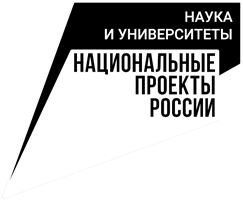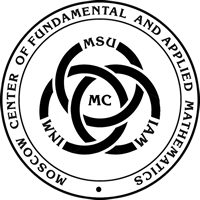44th meeting of the seminar
«Supercomputer simulation of the climate system»
The seminar is devoted to various aspects of the application of supercomputer modeling methods for solving weather and climate forecasting problems.
Seminar Leader:
- Sadovnichy V.A., academician, rector of Lomonosov Moscow State University
Co-leaders of the seminar:
- Wilfand R.M., Doctor of Technical Sciences, Scientific Director of the Hydrometeorological Center of Russia
- Dobrolyubov S.A., Corr. RAS, Dean of the Faculty of Geography, Lomonosov Moscow State University
- Yakovlev N.G., Doctor of Physics and Mathematics, Leading Researcher, Institute of Numerical Mathematics, RAS
- Stepanenko V.M., Doctor of Physics and Mathematics, Deputy Director of RCC MSU
Scientific Secretary of the seminar:
- Mortikov E.V., Ph.D., Researcher of RCC MSU
Seminar topics cover the following main areas (but not limited to them):
- Methods and technologies for using supercomputer computing in interdisciplinary problems of environmental sciences.
- Mathematical modeling of processes in the climate system.
- Application of supercomputer technologies for solving problems of weather forecasting.
- Application of supercomputer technologies to solve problems of assessing climate change and their consequences for the environment.
- Application of supercomputer technologies for the complex solution of problems of environmental protection, including natural hazards and man-made disasters.
PROGRAM
17:30 (GMT+3)
| C. Beer | Hamburg University, Department of Earth System Sciences, Institute of Soil Science |
HOW CAN WE CONSIDER PERMAFROST CARBON IN ESMs
One major challenge for society in the next three decades is to keep global warming below 1.5 °C above pre-industrial levels (Paris / Glasgow Agreement). A crucial contribution to societal discussions and political decisions from science is the estimation of the potential anthropogenic greenhouse gas (GHG) emission budget to ensure the implementation of such agreements. Importantly, dynamics of Arctic permafrost-affected soils have not yet been considered in models used to estimate these potential GHG emission budgets, despite of their global relevance. Also, the lack of representing potential permafrost organic matter decomposition in global models prevents us from studying permafrost carbon-climate feedbacks. In this seminar, we will present the current state-of-the-art of representations of permafrost carbon in global models. Then, we aim to discuss some important methodological issues that we face at the moment and possible future directions to overcome these methodological limitations, in particular:
- Initial condition of permafrost organic matter
- Spatial heterogeneity and aggregation error
- Importance of ground ice content and hydrology for future dynamics of soil carbon dynamics
- Carbon stabilization processes
- Non-CO2 greenhouse gases
- Plant-soil interactions
The meeting of the seminar will be held in person and in the form of a webinar on the Zoom platform.
Link to the conference: https://us02web.zoom.us/j/86227233434?pwd=VjRVYVZWNjNuRW9BeHhjSFFOV2VEUT09
Meeting ID: 862 2723 3434
Passcode: 421035
To simplify our work during the seminar, please do the following: check in advance that Zoom works for you (in the Zoom application settings you can check the quality of the speakers and microphone) and enter your last name, first name in your profile settings and middle name in full (this can be done on your profile page (https://us02web.zoom.us/profile) - in this case, conference colleagues will see how to contact you.

